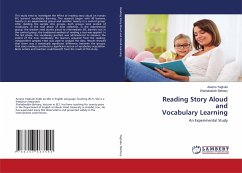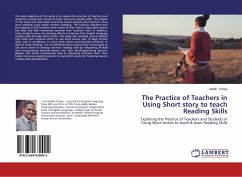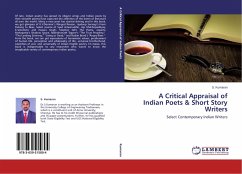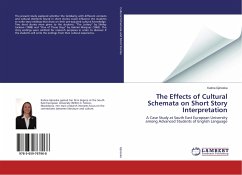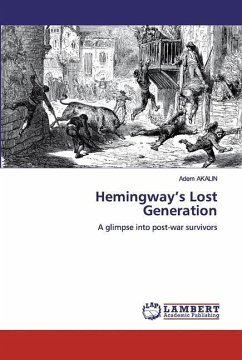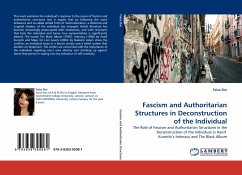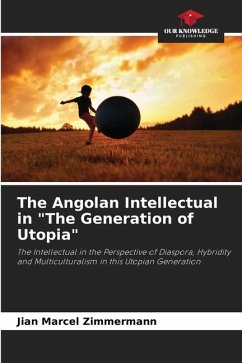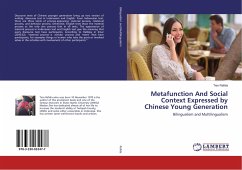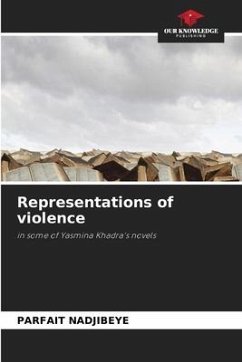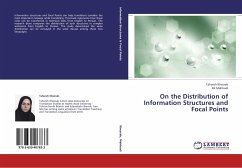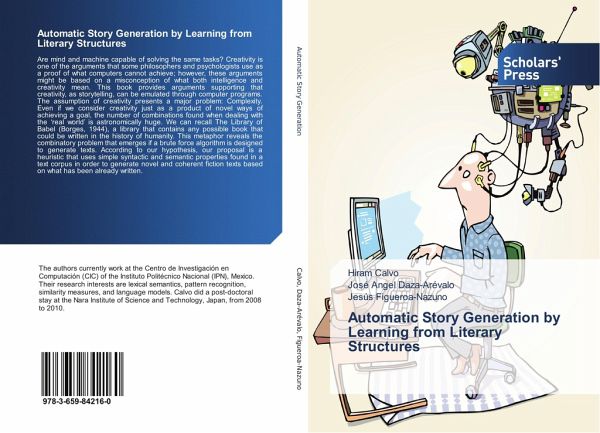
Automatic Story Generation by Learning from Literary Structures
Versandkostenfrei!
Versandfertig in 6-10 Tagen
30,99 €
inkl. MwSt.

PAYBACK Punkte
15 °P sammeln!
Are mind and machine capable of solving the same tasks? Creativity is one of the arguments that some philosophers and psychologists use as a proof of what computers cannot achieve; however, these arguments might be based on a misconception of what both intelligence and creativity mean. This book provides arguments supporting that creativity, as storytelling, can be emulated through computer programs. The assumption of creativity presents a major problem: Complexity. Even if we consider creativity just as a product of novel ways of achieving a goal, the number of combinations found when dealing...
Are mind and machine capable of solving the same tasks? Creativity is one of the arguments that some philosophers and psychologists use as a proof of what computers cannot achieve; however, these arguments might be based on a misconception of what both intelligence and creativity mean. This book provides arguments supporting that creativity, as storytelling, can be emulated through computer programs. The assumption of creativity presents a major problem: Complexity. Even if we consider creativity just as a product of novel ways of achieving a goal, the number of combinations found when dealing with the 'real world' is astronomically huge. We can recall The Library of Babel (Borges, 1944), a library that contains any possible book that could be written in the history of humanity. This metaphor reveals the combinatory problem that emerges if a brute force algorithm is designed to generate texts. According to our hypothesis, our proposal is a heuristic that uses simple syntactic andsemantic properties found in a text corpus in order to generate novel and coherent fiction texts based on what has been already written.



